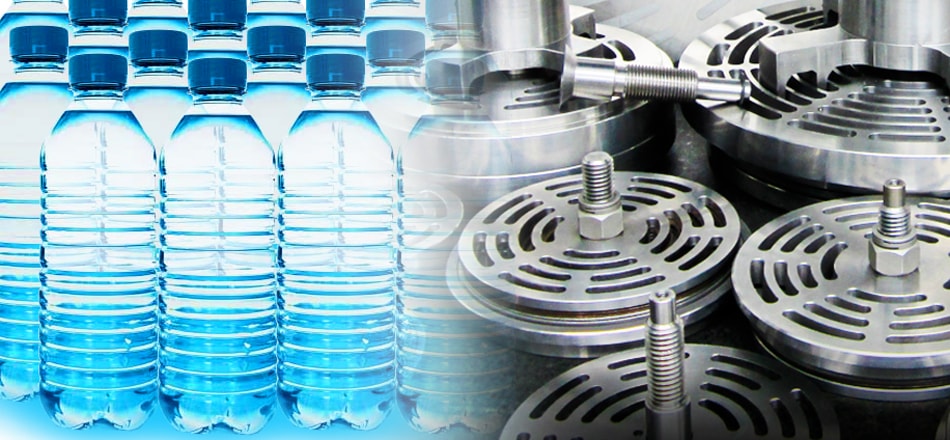Custom injection molding processes are leading the way in modern manufacturing, providing unmatched precision and efficiency in producing complex and finely detailed components. These processes utilize advanced technology to achieve consistent results, meeting the exacting standards of diverse industries with ease.
By delving into the nuances of injection molding, businesses can unlock new possibilities for design flexibility, material efficiency, and production speed. Mastering these techniques empowers businesses to meet the demands of diverse industries, from medical devices to consumer electronics, with superior quality and reliability.
Take proactive steps to explore and implement custom injection molding solutions to elevate your manufacturing processes and gain a competitive advantage in today’s dynamic market.
Understanding Injection Molding
Injection molding involves injecting molten material into a mold cavity under high pressure. Key components include the injection unit, mold, clamping unit, and ejection system. This process allows for the creation of intricate shapes with high precision and repeatability, making it suitable for a wide range of industrial applications.
Types of Injection Molding Processes
Each injection molding method offers unique advantages, including design flexibility, material efficiency, and enhanced production speed, catering to diverse manufacturing needs.
Custom injection molding includes specialized processes such as:
Insert Molding: Insert molding is a specialized technique that integrates pre-formed components or inserts into the mold cavity before the injection of molten material. This process enhances product functionality by securely encapsulating inserts within the final part, eliminating the need for additional assembly steps. It is widely used in industries requiring complex geometries and enhanced structural integrity, such as medical devices, electronics, and automotive components.
Overmolding: Overmolding involves applying a secondary material or layer over an existing substrate or part during the injection molding process. This method allows for the creation of products with improved aesthetics, ergonomic designs, and enhanced functionality. Overmolding is particularly advantageous in industries where soft-touch grips, protective covers, or multi-material components are required, such as consumer electronics, household appliances, and tool handles.
Multi-Shot Molding: Multi-shot molding enables the injection of two or more materials or colors into a single mold cavity in a sequential or simultaneous process. This technique enhances design versatility, allowing for the creation of complex parts with multiple textures, colors, or material properties within a single molding cycle. Applications range from automotive interiors and medical devices to consumer goods and industrial equipment, where aesthetic appeal, functional integration, and cost efficiency are paramount.
Micro Molding: Micro molding is a precision manufacturing process that produces small and intricate components with extreme accuracy and consistency. This specialized technique utilizes advanced tooling and molding technologies to create parts with micron-level precision, often requiring tight tolerances and complex geometries. Micro molding finds applications in industries such as medical devices, electronics, and telecommunications, where miniaturization, reliability, and performance are critical factors.
Injection Molding Materials
Materials used in custom injection molding encompass a wide range of thermoplastics and thermoset materials, each chosen for its specific properties and performance characteristics. Thermoplastics like polypropylene, ABS (Acrylonitrile Butadiene Styrene), and polycarbonate are renowned for their versatility, durability, and ease of molding. These materials offer excellent mechanical strength, impact resistance, and dimensional stability, making them suitable for a diverse range of applications across industries such as automotive, consumer goods, and electronics.
Thermoset materials such as silicone and urethane provide specialized properties that include exceptional heat resistance, flexibility, and chemical inertness. These materials undergo a chemical reaction during the molding process, resulting in a permanent cross-linked structure that enhances their performance under extreme conditions. Silicone, for instance, is widely used in medical devices, aerospace components, and food-grade applications due to its biocompatibility and thermal stability.
Material selection in custom injection molding is critical and depends on several factors, including mechanical properties required for the application, environmental conditions such as temperature and exposure to chemicals, and the desired lifespan of the product. For instance, applications requiring high-temperature resistance may opt for materials like PEEK (Polyether Ether Ketone), while those needing flexibility and impact resistance may choose TPU (Thermoplastic Polyurethane).
By carefully selecting the appropriate material, manufacturers ensure optimal performance, durability, and cost-effectiveness of their injection molded components in various demanding applications.
Benefits of Custom Injection Molding
Custom injection molding provides numerous benefits:
- Cost Efficiency: Reduces labor costs and material waste.
- Design Flexibility: Enables complex geometries and intricate details.
- High Production Speed: Rapid manufacturing cycles meet tight deadlines.
- Consistent Quality: Uniform parts with precise dimensions ensure reliability.
- Scalability: Easily scales production for large-volume orders with minimal adjustments.
These advantages make custom injection molding ideal for industries ranging from medical devices and consumer electronics to aerospace and industrial equipment.
Diverse Industries Benefiting from Custom Injection Molding
Custom injection molding is integral to various industries:
- Medical: Produces components for surgical instruments and medical devices.
- Electronics: Manufactures casings and components for electronic products.
- Packaging: Creates precise parts for packaging machinery and materials.
- Aerospace: Fabricates lightweight and durable components for aircraft.
- Industrial Equipment: Supplies parts for machinery and tools.
The versatility and efficiency of injection molding processes ensure widespread adoption in industries requiring precision manufacturing solutions.
Innovations and Advancements in Injection Molding Technology
Future developments in custom injection molding include:
- Advanced Materials: Development of high-performance materials for specific applications.
- Industry 4.0 Integration: Adoption of smart manufacturing technologies and IoT connectivity.
- Additive Manufacturing Fusion: Integration of injection molding with additive processes for hybrid manufacturing solutions.
- Sustainability Initiatives: Emphasis on eco-friendly materials and processes to reduce environmental impact.
These trends highlight the evolution towards more efficient, sustainable, and technologically advanced injection molding solutions.
Finding High-Quality Compressor Valve Parts
Looking for reliable compressor valve parts? KB Delta offers comprehensive solutions tailored to enhance your manufacturing processes.
Contact us today to explore our range of products, including compressor valve parts and compression springs, and discover how we can optimize your production capabilities with precision-engineered solutions.
Conclusion
In conclusion, custom injection molding processes are indispensable for modern manufacturing, offering versatile solutions tailored to diverse industrial applications. Understanding the fundamentals of injection molding, including materials, processes, and benefits, underscores its critical role in achieving efficient production and high-quality end products.
As industries evolve and technologies advance, custom injection molding remains at the forefront of shaping the future of manufacturing with its capability to deliver precision, scalability, and sustainability.

